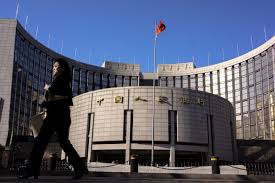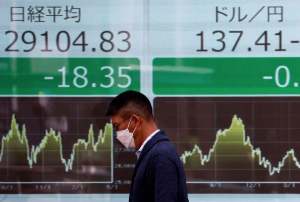(ATF) The government of China’s southern megacity Shenzhen is giving away 50,000 electronic red packets, each containing 200-yuan ($29.5) worth of digital currency to select consumers in a digital currency pilot.
The government will distribute the “red packets” through a lucky draw for spending at designated merchants in Luohu District, the Internet information office of Shenzhen government announced on its Weibo social media channel on Thursday.
A joint effort by Shenzhen government and People’s Bank of China (PBOC), the pilot aims to “propel the development of the Guangdong-Hong Kong and Macau Greater Bay Area” and “stimulate consumption” in the District’s long-term battle with Covid-19, the statement said.
The Luohu District that hosts the city’s central business district and is located just next to Hong Kong, will fund the pilot.
According to Shenzhen government’s WeChat channel, the winners of the lucky draw will get a week to spend the money at over 3,000 enrolled merchants including department stores, supermarkets, restaurants, gas stations, and the subway.
Tight control
To claim the red packet, a winner would need to download the digital yuan app and open a digital wallet account with one of the four designated banks, namely Industrial and Commercial Bank of China, Agricultural Bank of China, Bank of China, and China Construction Bank.
The digital currency could be spent either as digital cash, or, could be combined with physical money topped up from one of the four banks.
However, the digital yuan is not fungible, which means that it cannot be converted to physical currency by transferring to a bank account. Any unused digital yuan will be recalled after the pilot ends.
READ MORE: China’s digital yuan aims for a global future outside USD net
While the pilot does not require NFC-enabled mobile phones, analysts believe that NFC technology would be incorporated in the digital yuan app to support offline payments without a wireless connection.
Although a pilot, the latest effort is not the first digital currency trial for the PBOC-Shenzhen Government combine. Earlier, they had used digital yuan as well to reward about 5,000 Covid-19 healthcare workers.
Fuelled by the explosive growth of Alipay and WeChat Pay, while China claims to be the largest mobile payment market, Beijing wants to maintain a tight grip on digital currencies for controlling the nation’s money markets, and facilitating the yuan’s overseas use.
Last November, for instance, the PBOC cracked down on trading of cryptocurrencies, citing that they could be potential sources of financial instability.
Successful pilot runs
According to data revealed by PBOC’s deputy governor Fan Yifei, China’s digital yuan pilot programmes have processed over 1.1 billion-yuan ($162 million) worth of payments from 3.13 million transactions.
The pilot programmes made “positive progress”, with more than 6,700 use cases implemented until August, for transactions such as bill payments, catering services, transportation, and government services, Fan said.
In the past, digital yuan tests have also been conducted in other major cities such as Chengdu, Suzhou, the Xiongan New Area, Tests are planned for the Winter Olympics in 2022 as well.
But according to analysts, the Shenzhen-model, owing to some of its unique features should ideally be replicated around the country. “It is a streamlined model that also allows the local government to share customer information with PBOC, (Besides) the Shenzhen pilot aims at stimulating consumption and reviving the economy,” Song Jiaji, a blockchain industry analyst from Guoshen Securities, said in a note.
“In all likelihood, this model will be expanded nationwide,” he added.
READ MORE: Digital yuan likely means death for WeChat Pay, Alipay
























